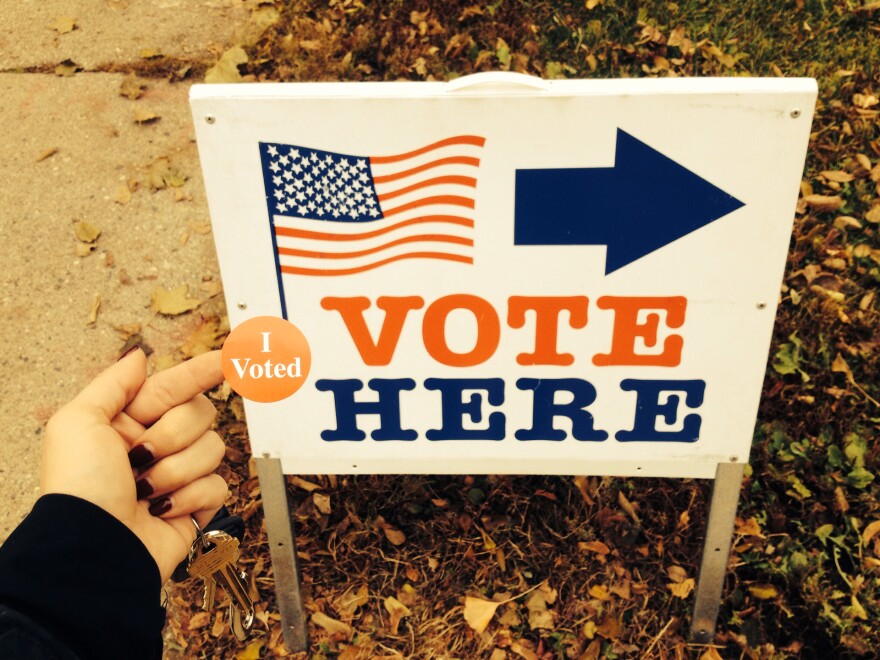BETHLEHEM, Pa. — Pitched battles over social issues on school boards will continue through November election, according to unofficial results from Tuesday's primary election.
Conservative Republican slates of candidates targeting LGBTQ issues and library books swept GOP primary races in the East Penn, Parkland and Southern Lehigh school districts, even as the Democrats and moderate Republicans who opposed those platforms landed victories on the Democratic tickets.
- Wedge issues drove the messaging in school board races across the Lehigh Valley
- Candidates who ran on slates could take control of district policy for teachers and students
- Many Democratic ballots for November are bipartisan mixes of registered Democrats and Republicans
Each district has five to six seats open; with school boards comprised of nine people, one slate controlling a majority of the seats could mean they will control the kinds of rules teachers and students have to follow.
Many new GOP candidates who called themselves "true Republicans" succeeded in their races by pushing wedge issues over race and gender, and capitalizing on resentment over past COVID masking policies and lingering learning gaps from the pandemic.
The slates of candidates for those school board races who will now be on the Democratic ballots are made up of registered Democrats and Republicans. That isn’t the case for the Republican tickets. Lori McFarland, chair of the Lehigh County Democratic Committee, said voters appeared to vote along party lines and those who cross-filed did better than those who didn't.
“The voters knew who the conservative ‘real’ Republicans were and the other voters knew who the slate was that included true moderate Republicans,” she said.
The Democratic ballot in East Penn, where there are five open seats, will include registered Democrats Shonta Ford, Gabrielle Klotz and incumbent Joshua Levinson, and Republicans Timothy Kelly and incumbent Jeffrey Jankowski.
"No one wants politics in schools."Parkland school board candidate Chris Pirrotta
Republican candidates, who are the “Your Voice on the Board” slate in that district, include Republicans Paul Barbehenn, Kristofer DePaolo, Lawrence Huyssen, Matt Mull and Angelic Schneider.
In Parkland, where there are six seats are up for grabs, the Democratic ballot is a bipartisan mix of incumbents and newcomers, including Carol Facchiano, Jay Rohatgi, Lisa Roth Marisa Ziegler and Chris Pirrotta. They were endorsed by the “Concerned Parents of Parkland” group. The Republican “Elevate Education” ticket consists of Mike Deering, Beth Finch, Natalie Janotka, Bobby Lanyon and George Rivera. Republican Mike Millo, who was also part of the group, won the Republican nomination for a two-year term and Rohatgi will challenge him for that spot as well.
Pirrotta said the number of votes his slate received showed that voters want school board directors more concerned with nonpartisan matters than culture war issues.
“No one wants politics in schools,” he said. “So I think we have a great message in that respect.”
There are five open seats in Southern Lehigh where Democrat Melissa Torba and Republicans Eric Boyer, Tim Kearney, Candi Kruse and incumbent Emily Gehman will run on the Democratic ticket against Republicans Maria Schantz, Paul Deebel, Lance Tittle, Danelle Roy and James Pica on the GOP ticket in the fall.
The all-Republican slate in Southern Lehigh, which has the support of the Lehigh County Republican Committee and the Lehigh Grassroots PAC, signed a pledge laying out its platform, including promising to enact policies to ban transgender students from using the bathroom of their choice and to review the curriculum for "wokeness."
Joe Vichot, chair of the Lehigh County Republican Committee said the pledge showed the voters who the true Republicans were, and that they responded favorably at the ballot box.
“That was the whole point of our campaign was to help educate our voter who the Republicans were because that’s who they knew they wanted to vote for because they know they represent their values,” he said.
Christopher Borick, a political science professor at Muhlenberg College, said primary voters are each party's base voters, so they are the most engaged but also a minority of who turns out in November.
"Then you have the ultimate showdown in the fall, in the general election," he said. "That's often a bigger electorate, one that brings in more moderate, more independent voters who can determine the outcome."
McFarland said voters appeared educated on the issues at stake.
“One person even came up to me and said ‘The only reason I’m here is to vote for the school board,’” she said. “So, I think they were well informed.”
The goal for the general election, McFarland said, is to continue to get Democrats’ messaging out to independents and others in the weeks to come.
“We have a lot of voters to still reach,” she said.
Vichot said his party feels confident about the road ahead.


